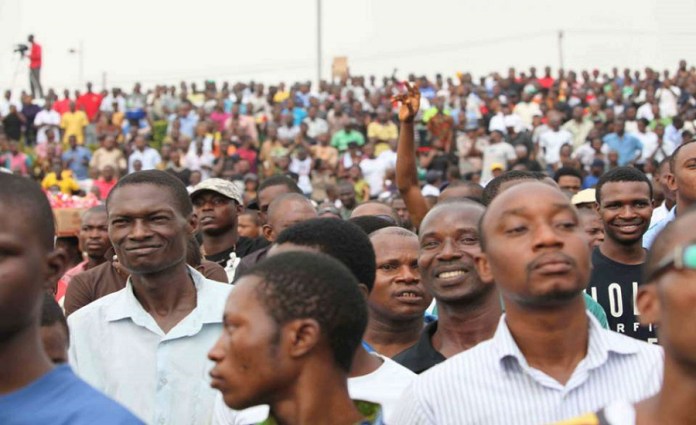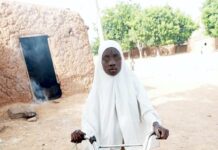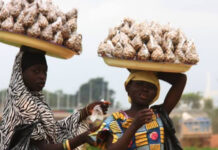Youths Marginalisation in Nigeria’s Politics Worrisome – Hauwa Mustapha
INFOMEDIA – A concerned Nigerian and stakeholder in the Nigeria Labour Congress (NLC) Hauwa Mustapha had expressed dissatisfaction over marginalization of youths in Nigeria’s mainstream politics, noting that it portends a great danger that will not augur well with the country’s political and social-economic development.
Hauwa, who spoke while presenting a paper at a virtual Conference organized by Centre for Information Technology and Development (CITAD) in collaboration with Rosa Luxembourg Foundation themed; “Youths Political Participation: How to strike a balance between age and principles” said “The continued marginalization of youths in the political processes of Nigeria paved way for an increasing agitation and revealed a system which has consistently exploited the weak, deepened vulnerability and widened the unequal access to economic and educational opportunities”.

She noted that “Today’s youth like other marginalized groups are disproportionately affected by major development challenges, such as; unemployment, climate change, poor physical and fiscal infrastructure among others in many ways that affects their state of social and psychological wellbeing which has a direct linked to the obvious denial to include them in to the decision making body of the country”.
Read Also:
Despite the establishment of National Policy on Youth which recognises the youth as a key player in Nigeria’s development process and aims to protect the fundamental human rights of all youth, promote their optimal development and well-being, and enhance their participation in every sphere of national development processes, the country keep surfacing in to the product of rigid and systemic complexity which made it difficult to accommodate youths in to the politics. The statement added.
She further said “The popular argument that the youth lack the maturity, experience and knowledge necessary for making informed decisions and participate actively in to the polical processes has been dispelled by traces of history. She however, added that the youth should be provided with institutional support for civic education both at the formal and informal levels, including political education and discussion at community levels aimed at building the relevant knowledge, skills and confidence for political participation which is of greater good for all”.
“There is the need for a collective and specific understanding by the youth that though clustered as a social group there are differences in gender, rural-urban, education and social experiences which affect their capacity to access opportunities and therefore their level and depth of political participation. These experiences and social realities need to be factored into the design and implementation of policies and programs that targets youth participation in the political processes”.
On his part, Murtala Muhammad, a lecturer at School of General Studies, Kano University of Science and Technology, Wudil, Kano, while presenting his paper on the same theme of the conference revealed that “Most Nigerian youths share a common feature of ethno-regional ideology, seeking to capture and consolidate power in their respective spheres of influence/region which is the major scary maxim of distancing them from attaining the higher echelon of power and involvement in to the major political processes of the country”
He however, noted that the youths, despite being at the square of representation to achieve the above end mainly by powerful polical actors in different geo-political zones of the country “Should be involved in the processes that shape their future, sustain political and developmental process in Nigeria in particular and Africa in general”.



























